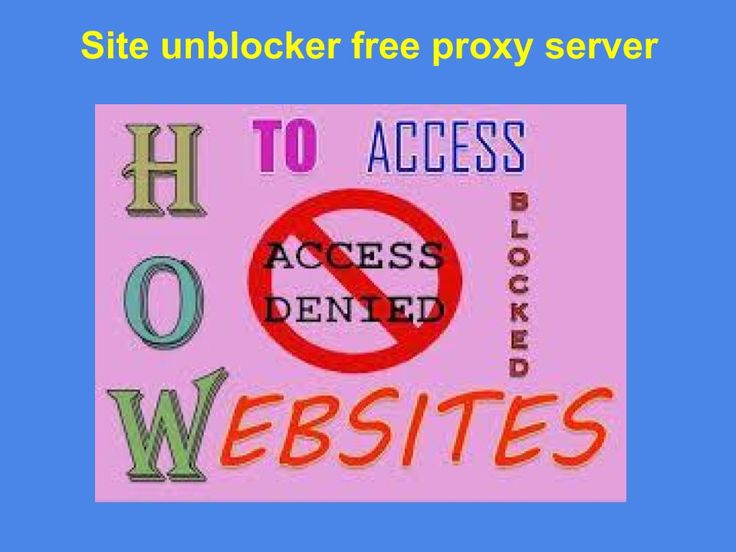In today's digital age, students often face restrictions when trying to access certain websites at school. Schools implement these restrictions to maintain a focused learning environment and ensure that students are not distracted by non-educational content. However, this can sometimes hinder genuine research or learning opportunities. This is where the concept of a website unblocker for school comes into play, providing students with the means to access valuable resources that may otherwise be blocked. Understanding the tools available for bypassing these restrictions is crucial for students who want to enhance their educational experience.
The need for a website unblocker for school is rooted in the balance between educational integrity and the desire for unrestricted access to information. Many students find themselves frustrated when they are unable to access websites that could aid their studies, such as educational videos, research papers, or even certain social media platforms that can serve as learning tools. This article will delve into various methods and tools that can help students navigate these restrictions effectively.
Furthermore, while using a website unblocker for school can be beneficial, it is essential to approach this topic with a sense of responsibility. Students should be aware of the potential consequences of bypassing their school's internet policies and ensure that they are using these tools ethically. In the following sections, we will explore different types of unblockers, their pros and cons, and the best practices for using them responsibly.
What is a Website Unblocker for School?
A website unblocker for school refers to any tool or method that allows students to bypass internet restrictions set by their educational institutions. These tools can range from browser extensions to proxy servers and VPNs (Virtual Private Networks). The primary purpose of these unblockers is to enable access to blocked content, promoting information accessibility and enhancing the learning experience.
How Do Website Unblockers Work?
Website unblockers operate by masking the user's IP address or redirecting internet traffic through a different server. This process can effectively conceal the user's online activity from the school's network filters. Here are some common methods:
- Proxy Servers: These act as intermediaries between a user's device and the internet, allowing access to blocked sites.
- VPNs: A VPN encrypts the user's internet connection, making it difficult for schools to track online activity.
- Browser Extensions: Certain extensions can bypass restrictions by routing traffic through alternative channels.
Are There Risks Associated with Using Website Unblockers for School?
While website unblockers can provide access to restricted content, they are not without risks. Students need to consider the following:
- Security Risks: Some unblockers can expose users to malware or phishing attempts.
- Privacy Concerns: Not all unblockers guarantee user privacy, potentially leading to data breaches.
- Disciplinary Actions: Schools may impose penalties for bypassing internet restrictions, which can affect a student's academic record.
What Should Students Consider Before Using a Website Unblocker?
Before utilizing a website unblocker for school, students should reflect on the following questions:
- Is the website I want to access truly educational and beneficial for my studies?
- Am I aware of my school's policies regarding internet usage and the potential consequences of bypassing them?
- Have I researched the unblocker to ensure it is safe and reliable?
What Are the Best Website Unblockers for School?
Here are some popular website unblockers that students can consider:
- NordVPN: Known for its robust security features and ability to bypass geo-restrictions.
- ExpressVPN: Offers fast speeds and a user-friendly interface, making it suitable for students.
- Hola VPN: A free option that allows users to access blocked content easily.
- ProxySite.com: A web-based proxy that provides a simple way to access restricted sites without software installation.
How Can Students Use Website Unblockers Responsibly?
To ensure responsible use of website unblockers, students should follow these guidelines:
- Always prioritize educational content and avoid using unblockers for non-academic purposes.
- Be aware of school policies and understand the potential consequences of bypassing restrictions.
- Keep security software updated to protect against malware and other cyber threats.
Conclusion: Navigating the Digital Landscape with Caution
In conclusion, a website unblocker for school can be a valuable resource for students seeking to enhance their learning experience. However, it is crucial to approach this tool with caution and responsibility. By understanding how these unblockers work, recognizing the associated risks, and adhering to ethical guidelines, students can successfully navigate the digital landscape while remaining within the bounds of their school's internet policies.
Also Read
Is Gia Giudice Pregnant? Exploring The Rumors And RealityKarlye Taylor: The Sensational Story Behind The OnlyFans Leak
Unraveling The Mystery Of Jonny Harris' Illness
Pep Rally Games: Energizing Spirit And Unity
Surviving The Unthinkable: The Story Of The 9/11 Woman Hit By Landing Gear
Article Recommendations
- La Freeway Protest
- 1470855 Zack Lugos Biography Age Height Net Worth Girlfriend Brother
- Tiffany Link Earrings
- Josh Allen Old Tweets
- Oleksandr Zinchenko
- 1230857 Tyler Perry Net Worth Age Height House Wife Son
- Kristy Mcnichol
- Thay Ksada
- 1534693 Piece Female Characters Deserve Attention




